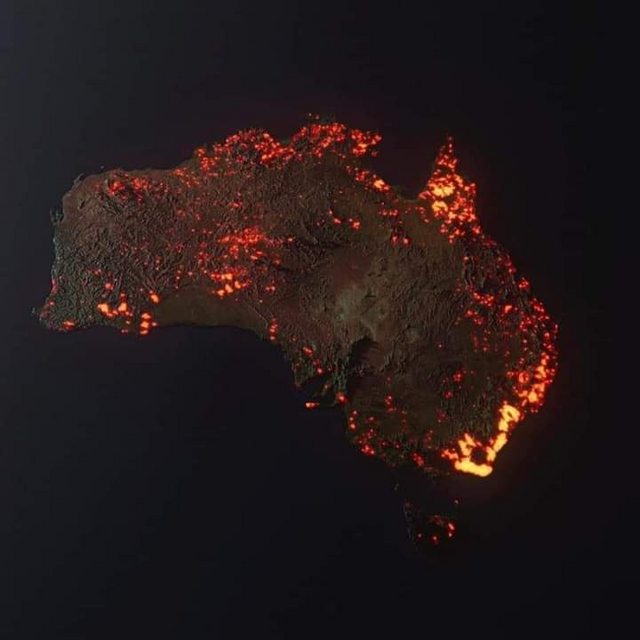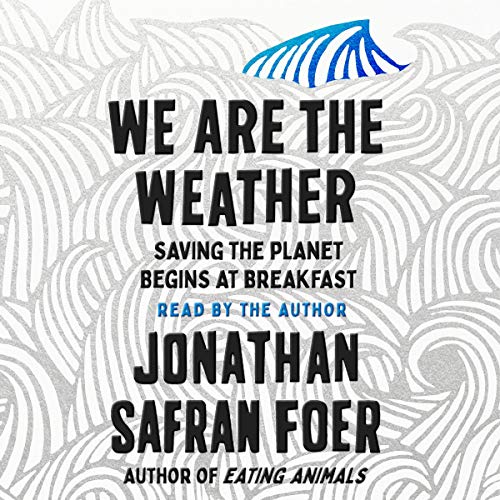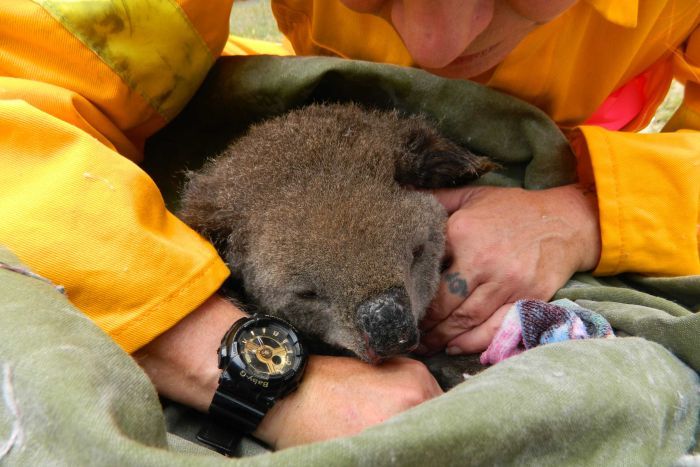“No one who isn’t us is going to destroy Earth, and no one who isn’t us is going to save it. The most hopeless conditions can inspire the most hopeful actions. We have found ways to restore life on Earth in the event of a total collapse because we have found ways to cause a total collapse of life on Earth. We are the flood, and we are the ark.”
― We Are the Weather: Saving the Planet Begins at Breakfast
With fires raging in Australia, devastating wildlife habitat, homes, and lives, it seems like a poignant time to discuss 1) why this is happening, through the lens of someone much smarter than me, Jonathan Safran Foer; and 2) how to help.

~ Anthony Hearsey Creative Imaging
Over the Christmas holiday, I plowed through We Are the Weather by my favorite author, Jonathan Safran Foer. In his newest novel, Safran Foer wades into the terrifying reality that our planet is on the verge of total collapse. For the first sixty pages of his book, he analyzes the question of why we haven’t done more when we have known all this time that how we live is desperately unsustainable. He concludes that action would require acknowledging that our planet, the home of every human being that has ever lived is dying, and is too much to bear.
While I read this, I was also bombarded with images of dead wildlife, burnt habitat, and climate refugees in Australia. There was a lot of crying while I read this book, for both the harsh realities from the pages and for the devastation going on across the globe.

But, despite how bleak it seems, there is a way to stop the bleeding.
Safran Foer highlights the four highest-impact individual actions we can take to prevent otherwise imminent planetary destruction:
- Eating a plant-based diet
- Avoiding air travel
- Living car-free
- Having fewer children (which has been shown to happen naturally around the globe when girls are educated)
I want to step in and say that it (almost) goes without saying that banging down the doors of fossil fuel companies, electing politicians that give an actual shit about our planet, and switching to renewable energy is extremely important, as well.
“We believe that the environmental crisis is caused by large outside forces and therefore can be solved only by large outside forces. But recognizing that we are responsible for the problem is the beginning of taking responsibility for the solution.”
The whole point of his book is this – we are all capable of making change. The question is – are we willing to? Are you willing to endure the minor inconvenience of living a vegan lifestyle to ensure a viable planet for future generations?
And, Safran Foer gets even more snarky that I would get, but maybe we need a little snark to light a fire under us. He writes, “You’re entirely capable of doing things you aren’t moved to do and refraining from things that you want to do. That doesn’t make you Gandhi. It makes you an adult.” Right now, the environmental movement is being led by a child (albeit, a very effective one) – where are the adults to make sacrifices to ensure the future viability for incoming generations?
His book forewarned what is now happening in Australia – this is what the future will look like if we don’t take immediate action.
One major cause of the increase in the brushfires in Australia this year are the massive deforestation that has occurred. Forests have been cleared for cattle. Cattle, in turn, cause additional carbon emissions. Coupled with high winds and high temperatures due to climate change, Australia is kindling. It’s all intertwined and it is a guarantee that this will keep happening if we don’t start making better choices. By raising cattle on cleared forest land, by producing feed for a sprawling meat and dairy industry, we have assured our planetary destruction. If cows were a nation, Safran Foer notes, they would be the third-largest emitter of greenhouse gas, behind the United States and China. Our Earth is a factory farm. And it’s burning.
Eating animals is a massive waste of resources. In America, we consume twice the amount of recommended protein, mostly from animal sources. In 2018, 99 percent of animals eaten in America come from a factory farm. We use 59 percent of all land capable of growing crops to grow food for livestock. Since the advent of agriculture, humans have destroyed 83 percent of all wild mammals. One calorie of animal protein requires about ten times the input of fossil fuel energy than one calorie of plant protein. For example, about six percent of all soy produced is consumed by people (the rest is consumed by livestock). There are huge savings to be made if we just eat the soy, bypassing the cow.
“Changing how we eat will not be enough, on its own, to save the planet, but we cannot save the planet without changing how we eat.”
If we take small sacrifices, if we put aside our palate desires, we can stem the tide of our destruction. More Australian and Amazonian blazes don’t need to be our fate if we act selflessly and immediately.
What does it mean to live ethically if not to use the environment as our first data point to decide what we eat, whether or not we fly, how many miles we drive in a car, and how many children we have? We make daily decisions that eventually make up our lives, and will create a blueprint for the lives of future humans. We must choose carefully.

Okay, I promised to provide ways to support Australian people and wildlife in this disaster. Here are some organizations that are helping:
- RSPCA started a “bushfire appeal” to help protect pets and livestock from Australian fires, and you can donate to it here.
- WIRES is accepting tax-deductible donations that will go toward protecting native animals.
- The World Wildlife Fund is accepting donations for conservation efforts, with specific focus on koalas. Any money you give helps with emergency koala care.
- The Port Macquarie Koala Hospital is also accepting donations via a GoFundMe page.
- You can donate to the Australian Red Cross, which has volunteers at evacuation and recovery centers.
- The St. Vincent de Paul Society Australia is requesting money to help evacuated families cover bills and rebuild.
Thank you for sharing this. The stats around methane and nitrous oxide related to raising cattle and eating meat are shocking.
LikeLike
You are changing my life Shannon…..
LikeLike